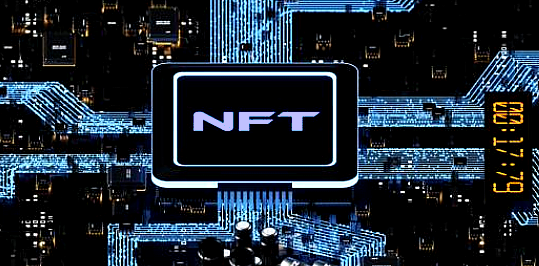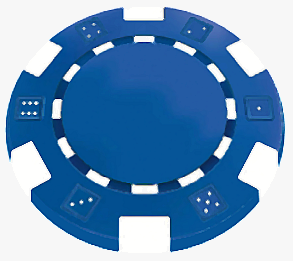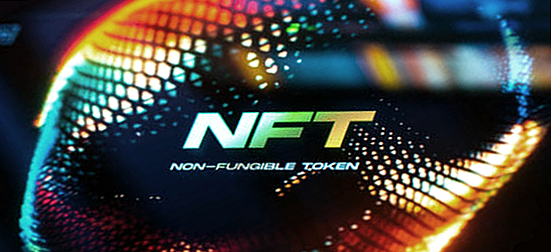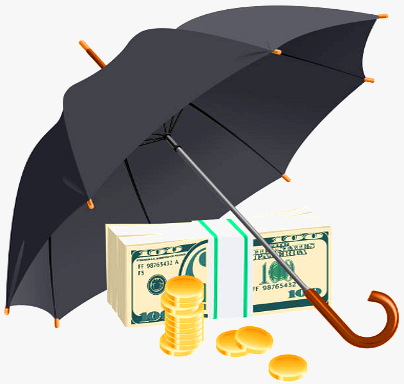Accredited InvestorsAltcoinAnatoli UnitskyAnti-Money Laundering (AML) In CryptoAPIArbitrageArtCoin TokenArticle DirectoryASICAuction Terminology GlossaryBasics of Stock Market InvestingBear MarketBest Crypto Payment Provider In the WorldBitcoinBlockchainBlockchain ConfirmationBlockchain Consensus MechanismBlockchain ForkBlockchain GlossaryBored Ape Yacht ClubBuild a Business That OutperformsBull MarketBuying SkyWay SharesByzantine Fault Tolerance (BFT) ExplainedCasascius CoinCentral Bank Digital Currency (CBDC)Centralized Crypto ExchangeCoinCoinsetCold WalletCollateralCommodity Futures Trading Commission (CFTC)Cross-Chain TechnologyCRUCrypto ExchangeCrypto GlossaryCrypto JokesCrypto Terms to KnowCrypto TickerCryptocurrencyCryptographyCryptojackingCryptounit BlockchainCryptounit GlossaryCryptounit ProgramdApp (Decentralized Application)Dead CoinDecentralized Exchange (DEX)Decentralized Finance (DeFi)Difference Between Bitcoin and EthereumDifferent Ways of Investing MoneyDigital CurrencyDistributed LedgerDo Your Own Research (DYOR)Dollar Cost Averaging (DCA)Dow Jones Industrial Average (DJIA)EncryptionERC-20ERC-721EthereumEvoScentFear Of Missing Out (FOMO)Fear, Uncertainty and Doubt (FUD)Fiat MoneyFNT Fintech CompanyGenesis BlockGlobal Unit PayGlossary of Banking TermsGlossary of Business TermsGlossary of Financial TermsHalvingHODLHot WalletHow Do I Start InvestingHow Rich is Satoshi Nakamoto?How to Create a BlockchainHow to Find Private InvestorsHow to Get Into FintechHow to Program Smart ContractsI Am Thrilled to Be a Part of This Global ProjectInitial Coin Offering (ICO)Initial Public Offering (IPO)Initial Token Offering (ITO)Innovation Basalt TechnologyInnovative Transportation TechnologiesInternational Bank Account Number (IBAN)Investing in Gold Mining StocksInvesting in Gold MiningJagerJoy of Missing Out (JOMO)Know Your Customer (KYC)LedgerLiquidity in CryptocurrencyMaker and Taker Fees in Crypto TradingMarket Capitalization (Market Cap)Meme CoinMetal Credit CardMetaMaskMillenials Now Have Access to Generational WealthMy Best Investment EverNew Digital EvolutionNFT GlossaryOff-Chain TransactionsOn-Chain TransactionsOpen Edition NFTPeer-to-Peer (P2P)Personal Loan GlossaryProbably the Best STO on the MarketProof of Stake (PoS)Real Estate Glossary of TermsReal Estate Investing GlossaryRebase TokenSecurities and Exchange Commission (SEC)Security Token ExchangesSecurity Token Offering (STO)Soulbound Decentralized Identities for Security TokensSoulbound ID Launch by Stobox Proves a SuccessSoulbound TokensStoboxStock Market GlossaryTestimonialsTether Platform and Token (USDT)UnitEx ExchangeUnitsky String TechnologiesUNTBUSDUValidatorWe Started Investing When We Were 25What are Blue Chip NFT?What are Blue Chip Stocks?What are Crypto Assets?What are Crypto Smart Contracts?What are CryptoPunks NFT?What are Digital Assets?What are Digital Collectibles?What are Gas Fees?What are Gas Wars?What are Hashmasks?What are Non Fungible Tokens?What are Non-Sufficient Funds (NSF)?What are Soulbound Tokens (SBT)?What are Stablecoins in Crypto?What are Transactions Per Second (TPS)?What are Utility NFTs?What are Utility Tokens?What Does Burning Crypto Mean?What Does Diamond Hands Mean?What Does Paper Hands Mean?What Does To The Moon Mean?What Does WAGMI Mean?What Happened to Satoshi Nakamoto?What is a 51% Attack?What is a Baby Boomer?What is a Backlink?What is a Banner?What is a Barcode?What is a Bid-Ask Spread in Crypto?What is a Block in Blockchain?What is a Block Reward?What is a Blockchain Address?What is a Blockchain Node?What is a Blockchain Oracle?What is a Blog?What is a Bond?What is a Bot?What is a Broker?What is a Business Accelerator?What is a Cash Cow?What is a Commercial Bank?What is a Commodity?What is a Con?What is a Credit?What is a Credit Limit?What is a Credit Rating?What is a Crypto Airdrop?What is a Crypto Bridge?What is a Crypto Scam?What is a Crypto Token?What is a Crypto Wallet?What is a Crypto Whale?What is a Crypto Winter?What is a Cryptocurrency Public Ledger?What is a Cryptocurrency Roadmap?What is a DAO?What is a Dark Pool?What is a Day Trader?What is a Dead Cat Bounce?What is a Default?What is a Derivative?What is a Digital Credit Card?What is a Fiscal Quarter?What is a Fungible Token?What is a Governance Token?What is a Grace Period?What is a Hard Fork?What is a Hot Wallet?What is a Hybrid Blockchain?What is a Hybrid PoW/PoS?What is a Joint Account?What is a Market Cap?What is a Merkle Tree in Blockchain?What is a Mining Farm?What is a Nonce? What is a PFP NFT?What is a POS System?What is a Prepaid Card?What is a Private Blockchain?What is a Private Key?What is a Public Blockchain?What is a Public Key?What is a Reserve Currency?What is a Ring Signature?What is a Routing Number?What is a Rug Pull in Crypto?What is a Safe Deposit Box?What is a Satoshi?What is a Security Token?What is a Seed Phrase?What is a Shitcoin?What is a Sidechain?What is a Soft Fork?What is a Spot Market?What is a State Bank?What is a SWIFT Code?What is a Tax Identification Number (TIN)?What is a Time Deposit?What is a Transaction Account?What is a Variable Interest Rate?What is a Virtual Assistant (VA)?What is a Virtual Card?What is a Virtual Currency?What is a Visa Card?What is a Whitelist in Crypto?What is a Whitepaper?What is Accounts Payable (AP)?What is AMA in Crypto?What is Amortization?What is an Accrual?What is an ACH Transfer?What is an Actuary?What is an Addendum?What is an Algorithm?What is an Angel Investor?What is an Annuity?What is an Asset?What is an ATM?What is an Atomic Swap?What is an Audit?What is an Avatar?What is an EIN?What is an Embargo?What is an Entrepreneur?What is an IDO (Initial Dex Offering)?What is an Interest Rate?What is an Internet cookie?What is an Investment Bank?What is an NFT Drop?What is an NFT Floor Price?What is an Ommer Block?What is an Orphan Block?What is an Outstanding Check?What is an Overdraft?What is Artificial Intelligence (AI)?What is B2B (Business-to-Business)?What is B2G (Business-to-Government)?What is Bartering?What is Bitcoin Dominance?What is Bitcoin Pizza Day?What is Blockchain Immutability?What is Blockchain Used For?What is BRICS?What is Business-to-Consumer (B2C)?What is C2C (Customer to Customer)?What is Capitalism?What is Catfishing?What is CFD Trading?What is Check Kiting?What is Cloud Mining?What is Communism?What is Content Marketing?What is Decentralization in Blockchain?What is DeFi in Crypto?What is Delisting?What is Depreciation?What is Digital Marketing?What is Diversification?What is Double Spending?What is Dumb Money?What is Dumping?What is Earnings Per Share (EPS)?What is Economics?What is Email Marketing?What is Equity?What is Etherscan?What is Fintech?What is Foreign currency?What is Forex?What is Fundamental Analysis (FA)?What is GameFi?What is Generative Art NFT?What is Gwei?What is Hard Currency?What is Hash Rate?What is Hashing in Blockchain?What is Inflation?What is Initial Game Offering (IGO)?What is Interest?What is Interest Income?What is Mainnet?What is Mastercard?What is Metaverse in Crypto?What is Mining in Cryptocurrency?What is Minting NFT?What is Mobile Banking?What is Money Laundering?What is NFT Alpha?What is NFT Metadata?What is NFT Rarity?What is NGMI Meaning?What is Nominal Interest Rate?What is Online Banking?What is Open-End Credit?What is OpenSea NFT Marketplace?What is Personal Identification Number (PIN)?What is Play-to-Earn?What is Polygon?What is Proof of Authority (PoA)?What is Proof of Work (PoW)?What is Public Key Cryptography?What is Pump and Dump?What is Quantum Computing?What is Refinancing?What is Retail Banking?What is Ripple?What is Sharding?What is Slippage in Crypto?What is Smart Money?What is Solvency?What is Soulbound ID?What is SSL?What is Staking in Cryptocurrency?What is Technical Analysis (TA)?What is Testnet?What is the Ask Price?What is the Better Business Bureau (BBB)?What is the Bid Price?What is the Dark Web?What is the InterPlanetary File System (IPFS)?What is the Gold Standard?What is the Lightning Network?What is the Prime Rate?What is the Sandbox?What is the Secondary Market?What is the World Bank?What is Tier 1 Capital?What is Tokenomics?What is TRC-20?What is Universal Banking?What is Unspent Transaction Output (UTXO)?What is Usury?What is Volatility in Crypto?What is Wash Trading?What is Web3?What is Whisper?What is XRP?What is Zero-Knowledge Proof (ZKP)?Who is Beeple?Who is Satoshi Nakamoto?Who is Vitalik Buterin?Why Tokenization is a Safe HavenWhy You Should Try Your Hand at Trading
What are Utility NFTs?
- Home
- NFT Glossary
- What are Utility NFTs?
Despite being unique non-fungible tokens (NFTs) may face criticism for their limited real-world utility.

However, the emergence of utility NFTs may change that perception. These digital assets come with tangible rewards and practical applications, making them attractive to potential NFT adopters, especially the younger generation.
What are Utility NFTs?
Although the concept of NFTs is not entirely new, the emergence of utility NFTs has added a new dimension to this digital asset class. Utility NFTs are digital assets that are designed to have real-world applications and tangible rewards. Unlike traditional NFTs that are primarily collectibles, utility NFTs are functional and provide a practical use case beyond their inherent rarity and uniqueness.
At its core, utility NFTs are a type of smart contract that enables developers to embed additional functionality into NFTs beyond their basic ownership attributes. This added functionality can range from access to exclusive content or events to unlocking specific features in a game or application. The possibilities are endless, and developers are only beginning to scratch the surface of what is possible with utility NFTs.
One of the most significant advantages of utility NFTs is that they offer a direct and tangible benefit to the holder beyond just owning a rare digital asset. They provide a way to create more engaging and interactive experiences for users and incentivize them to participate actively in various communities.
For example, a music artist could use a utility NFT to give their fans exclusive access to backstage passes, VIP events, or even a private concert. Gamers could use a utility NFT to unlock rare items or skins in a game, providing a competitive edge and a unique visual experience.
Adding Utility to Non Fungible Tokens: A Case Study
While many are curious about how to add utility to standard NFTs, the approach is more about reforming the application of technology than changing the technology itself.
A great example of utility NFTs comes from the music industry, where Kings of Leon released their album as an NFT collection in March 2021. The band used conventional platforms like iTunes and Spotify but also offered different utility NFT variants in the album. For instance, one NFT featured digital artwork and a digital music download option, which owners could redeem for a limited edition vinyl copy. Another NFT variant provided top seats at Kings of Leon concerts and shows. The NFT music album release generated around $2 million in sales.
This example of adding utility to NFTs reinvented the way buyers discovered value in non-fungible tokens. Instead of just owning a digital album, music enthusiasts could redeem the NFTs for real-life vinyl record copies of the album or get exclusive rewards like the best seats at shows. The Kings of Leon music album release as a series of NFTs presents a compelling case for utility non-fungible tokens.
Adding utility to NFTs doesn't require creating a separate NFT with new and advanced technology. Rather, it involves embedding additional functionality into existing NFTs to offer a direct and tangible benefit to the holder beyond owning a rare digital asset.
Applications of Utility NFTs
Let`s explore some of the exciting applications of utility NFTs across various industries.
- Gaming - Gaming is one of the most promising areas for utility NFTs. In-game items such as weapons, skins, and characters can be turned into NFTs, allowing players to own them and trade them with other players. In addition, utility NFTs can offer other benefits, such as access to exclusive content, early access to game releases, and even voting rights on game development decisions.
- Real Estate - Real estate is another industry where utility NFTs can be applied. They can represent ownership of physical properties, making it easier to transfer ownership and sell shares. Utility NFTs can also represent virtual properties in metaverses and virtual worlds, allowing owners to decorate and customize them.
- Music - As we discussed in the previous chapter, the music industry has already embraced utility NFTs. They can represent ownership of albums, access to exclusive content, and even concert tickets. Utility NFTs can also be used to track and monetize royalties for artists, ensuring that they receive a fair share of revenue from their music.
- Sports - Sports memorabilia is another area where utility NFTs can be applied. They can represent ownership of jerseys, game-used equipment, and other collectibles. In addition, utility NFTs can provide exclusive access to events, meet-and-greets with athletes, and even voting rights on team decisions.
- Finance - Utility NFTs can also have applications in the finance industry. They can represent ownership of assets such as stocks, bonds, and commodities, making it easier to transfer ownership and trade them. In addition, utility NFTs can offer other benefits such as access to exclusive financial services, voting rights on company decisions, and even dividends.
Related Articles

What are Blue Chip NFT?
Finally, NFTs with real-world utility are more likely to achieve blue-chip status than those that are solely collector's items. Projects with utility beyond hype, such as...

What are Non Fungible Tokens (NFTs)?
Non fungible tokens (NFTs) are cryptographic tokens that represent a unique digital or physical asset. Within a blockchain network, they serve as verifiable proofs of...

What are Crypto Assets?
Tokens can be divided into several categories such as utility tokens, security tokens, and non-fungible tokens (NFTs).
- Home
- NFT Glossary
- What are Utility NFTs?